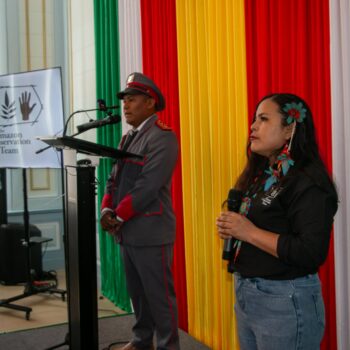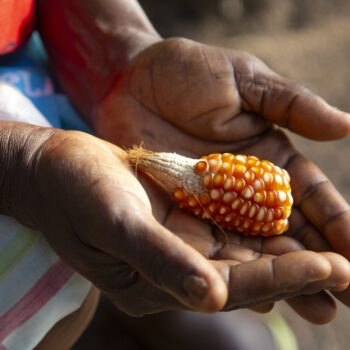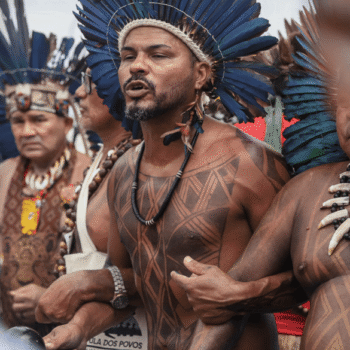Share this post
In the remote forests of Suriname, ACT is collaborating with students from the University of Utrecht (The Netherlands), the Anton de Kom University (Suriname) and Suriname’s Institute for Natural resources to protect biodiversity in Trio and Wayana lands. Through this partnership, both students and ACT’s Indigenous Park Guards (IPGs) will gain important skills.
To support these young people in their research, ACT organized a week-long workshop in May in partnership with the Centre for Agricultural Research in Suriname and the Herbarium of Suriname. This way, students received additional training to compliment the methodologies and skills they learned at their universities.
The workshop took place at the Jan Starke training center (JSOOC) in Suriname’s Para district near the capital city of Paramaribo. This 4,000-acre area–usually used to train representatives from the forest or timber industry in land management—was the ideal spot to teach students how to use scientific instruments and collect data, as well as proper protocols for this research projects.
On the first day, students received a crash course in using compasses and GPS units. The training combined classroom time with experiments in the outdoors where they put their new skills and the protocols into practice. The group outlined research plots and counted and identified trees with botanist Hubert Jubitana—all while fending off clouds of mosquitos and biting ants. Johan Hardjopawiro, ACT-Suriname trainer, oversaw these outdoor exercises.
”It is very good to exchange knowledge with students through this field work,” he said. “They will soon forget the mosquitos and ants.”
After their day in the field, the students returned to their camp for dinner and to hear a presentation about the village of Kwamalasamutu from ACT’s Manager for Field Project Bruce Hoffmann. Kwamalasamutu—or Kwamala for short—will be the student’s home for the duration of the project.
With anecdotes, short films and pictures, Hoffmann shared the world of the indigenous people, complete with its cultural differences, customs and language.
The students, including Devika Rattan from Nature Technical Institute of Suriname (NATIN), listened carefully.
“I am eager to go to Kwamalasamutu,” Rattan said. “Everything I have heard so far makes me more curious. I think I can learn a lot in the field.”
After the presentation, the students headed out with Johan Hardjopawiro and ACT’s Biodiversity Officer Leen De Laender to place 10 camera traps before bed.
The next morning, the group woke up early to review the photos from the camera traps. Just one camera had captured photographs during the night and the students waited eagerly as Hardjopawiro put the memory card into the computer.
“There…yes we have something,” Hardjopawiro said as a creature came into view. “A cat makes his nightly walk.” Everyone laughed. While this wasn’t as exciting as capturing a jaguar or capybara on camera, the test was a success.
On May 30th, the group gathered at the air strip for the flight to Kwamala. Flights into the interior are often cancelled. Due to heavy rain, rainforest airstrips often turn into mud pools. Luckily, the plane was cleared for takeoff.
The team packed their bags on board, making sure that the weight did not exceed the maximum amount. The weight on each flight is very carefully monitored to make sure there will be enough gasoline for the trip.
As the plane took off, it was easy to spot the newest Amazon travelers. Because of the rain, there was a lot of turbulence. While the seasoned field experts stayed calm, many of the students looked pale and uncomfortable. A few hours later, the plane arrived in Kwamala where the team will be stationed until July 29.
This project represents an exchange of knowledge that benefits both parties. While ACT’s IPGs serve as the local experts for the students—guiding them to locations where certain species are found and demonstrating how to work in the field—the students bring knowledge, methodologies, and skills from their universities. This will allow the IPGs to refine their abilities in a way that their data can be used more widely, according to ACT Suriname Director Minu Parahoe.
“The IPGs will learn internationally accepted protocols,” Parahoe explained. “The information they collect can then be used by scientists, the government or universities. The data will allow us to do many things, including better understand the effects of climate change or mining in the region, and can support local decision making on forest use.”
ACT also hopes the project will inspire students to continue this critical fieldwork. Through their efforts, we can improve training for the IPGs and continue to refine data collection in Suriname’s rainforest interior.




